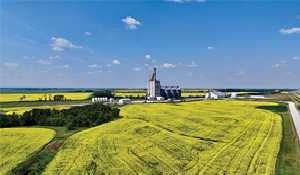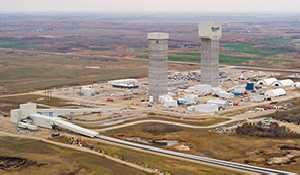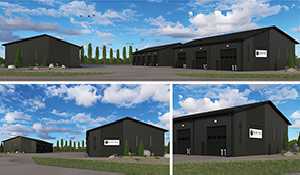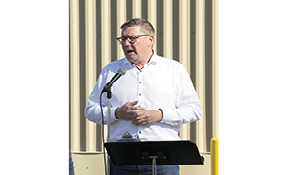EDC has had big impact on Elkhorn in 10 years
August 8, 2018, 10:42 am
Kara Kinna
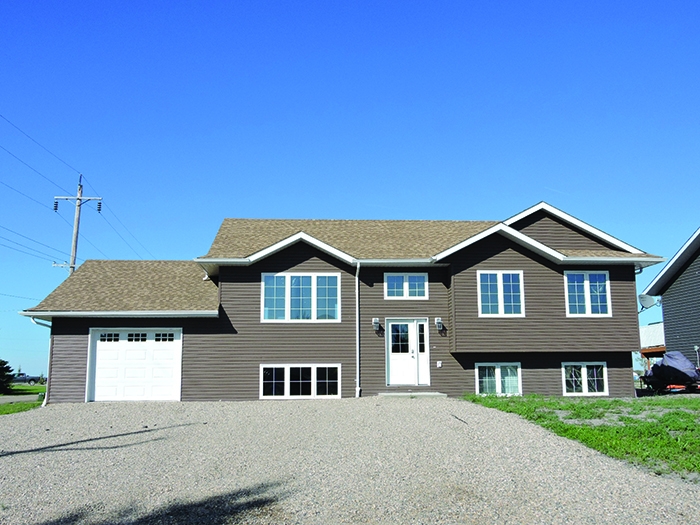

The Elkhorn Development Corporation is celebrating its 10th anniversary this year, and 10 years and 25 new homes later, it’s clear that the group has had an impact on the community of Elkhorn.
The EDC is a registered not-for-profit community organization that was formed by private citizens—all of them either former or current residents of Elkhorn—in 2008.
Over the past 10 years the EDC has built 25 new homes in Elkhorn.
Brent Reid, who currently sits on the board of directors for the EDC, and is the past president, says it’s key to note that the EDC is a not-for-profit organization.
“It’s hard to get a Revenue Canada non-profit designation for this kind of thing, and we managed to get it,” he says. “It’s a registered not-for-profit organization and BDO is our auditor for Revenue Canada. And that is significant, because we had people who provided loans, and we paid 4.5 per cent interest on those loans.”
The EDC started out with nine directors—all of them investors—as well as three financial advisors (who were non-investors) with backgrounds in financial management. Some investors were also community members who did not sit on the board of directors. With the seed money in place, the EDC set about building new houses in Elkhorn.
“We make a small margin on each house,” says Reid. “That margin is the residual that we have currently today, and the organization will either continue with new directors, or any money that’s remaining would probably go to the Elkhorn Foundation if we were to disband.”
Garth Mitchell, the Chief Administrative Officer for the RM of Wallace-Woodworth, says the EDC has had a major impact on the community of Elkhorn.
“The biggest impact it had was kick starting a very large new housing development program in the community. It was a win-win situation in that a lot of the properties that they took on had poor quality or older abandoned houses on them and it was a huge upgrade in our community,” he says. “I think with that leadership and the activity with the EDC group it also stimulated some other locals—not through the ECD—to do home renovations, upgrades and some new builds.
“The focus of the group when they first started was to do the smaller retirement homes, the one-level, 1,200 square foot type of homes, and they built three of those with the original build and then found they had requests and needs for family housing. I think by the development of the houses after those first three it allowed a lot of the families good, solid, affordable housing in our community. It was a real win in recruiting and retaining some of our youth and younger families.
“Sometimes in smaller communities the housing market is limited and I think this gave affordable entry level housing to a lot of younger couples and families that couldn’t afford maybe a large, fancy house in other communities, but these very well-built, good houses were a great option for them.
“And the other positive thing was the impact it had on our community. It wasn’t a huge demand on development of our infrastructure. They were all basically infill housing, and they fit into lots that were previously serviced with sewer and streets and didn’t require any additional costs on the municipality’s end, and that was huge.
“The municipality’s only contribution to the new housing was the infill housing incentive program which we had previous to EDC starting, and that’s a grant program for somebody who builds on a lot that doesn’t require new servicing, and it’s a $4,000 tax break over four years.
“Basically there was enough income with the additional building to fuel the incentive program. So from the municipality’s end it wasn’t a cost. It was just a spinoff and it had a huge impact on our overall municipal assessment.”
Mitchell says EDC is unique in that it was spearheaded without any government money.
“I think it’s pretty unique in the fact that the funds they used were all from private citizens that seeded this and ran this project on their own money, and then created their own momentum. I think the majority of other housing programs have had some other level of government incentives. In this case there really wasn’t any incentives on the front end,” he says.
What has the reaction been?
“I know the majority of the residents are very happy to see the sites cleaned up and new housing be put in there,” he says. “It really has changed the face of the community. And from other communities we have had a number of calls from people wondering what we’ve done, and as a municipality we just pass them off to the Elkhorn Development group and explain that, really, we were just the benefactor and we had nothing to do with the organizing or the ongoing development.”
Tim Klassen, the President and CEO of Sunrise Credit Union, which has been the main source of financing for the EDC since it got going, says their relationship with the EDC has been nothing but positive.
“We have been their main bank since the beginning and have been involved with helping them build these homes,” he says.
“It’s pretty amazing, for a small community and local people banding together. I almost liken it to the roots of credit unions and how they got started, and co-ops across Western Canada—groups of local people banding together to pool resources and try to do something to improve their community. It’s pretty nice to see.”
Klassen says Sunrise Credit Union was happy to work with the EDC when they came to them.
“We were happy to be a part of it,” he says. “It’s part of who we are—we want to work with communities and people in those communities to work on projects similar to this. I say it’s a win-win.”
Klassen says the EDC is unique among the Credit Union’s customers.
“This is very unique in the sense that they are doing it as a non-profit, they are doing it just to provide some housing, to bring people to their community,” he says.
“They are not doing it for profit, they are doing it for their community, they just want to make sure the costs are covered and they are doing something to attract people to the community.
“It’s been great and it’s been a pleasure to be able to be a part of it. When people put their minds to stuff it’s amazing what can happen.”
Larry Maguire, the MP for Brandon-Souris, says the importance of what EDC is doing for rural development can’t be underestimated.
“It’s a very interesting project and it’s been a very successful project for the community of Elkhorn and I commend the group of investors that are there for taking the bull by the horns and working with the community to clean up some facilities that were in disrepair or had or just aged, and turning them into very productive lots in the community,” he says.
“Certainly they were the proof in the pudding that this type of project could be successful and work very well for the community as well as the investors.
“Every year in parliament I talk about rural development. This is a fine example of what individuals can do without the government’s support.
“I’ve lived in this area all my life and rural development is one of the keys to our whole region. I’m pretty gratified by the fact that there are individuals who have taken this initiative to get together, work together and show that co-operation that can take place by private citizens and the local community to make these kinds of things happen.
“It’s extremely important. Apart from the fact that it’s an investment for themselves, it shows that they have confidence in their community.”
